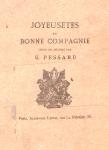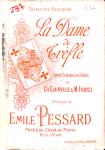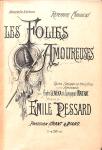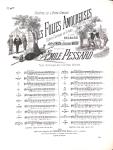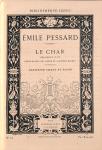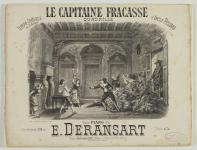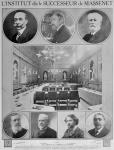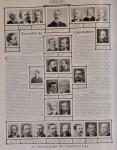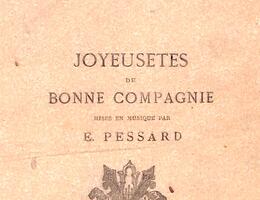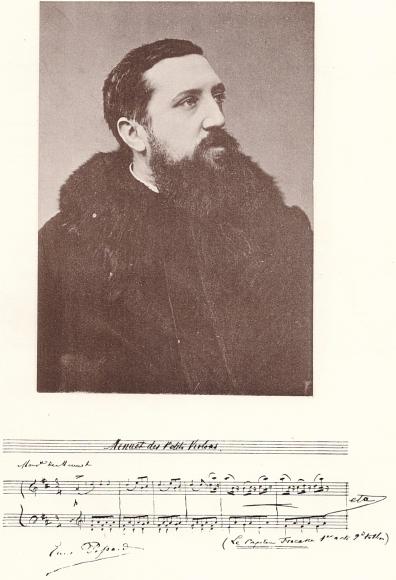
Émile PESSARD
1843 - 1917
Composer
Pessard attended the École Niedermeyer before entering the Paris Conservatoire, where he studied under Laurent (piano), Benoist (organ), Bazin (accompaniment and harmony) and Carafa (fugue and composition). In 1866, he won the Grand Prix de Rome with his cantata Dalila. An instrumentalist who played the flute, double bass and timpani in various orchestras, music critic for L’Événement, he was also inspector of vocal teaching in the municipal schools of Paris and professor of harmony at the Paris Conservatoire (his students included Charpentier, Ravel and Ibert). Although he composed songs, religious music and instrumental pieces, he focused mainly on writing for the opera stage, receiving his first successes in the genre after his return from the Villa Medici (La Cruche cassée, 1870; Don Quichotte, 1874). In 1885, he was privileged to receive a premiere at the Paris Opéra with Tabarin. He adapted various famous works of literature, including Le Capitaine Fracasse (after Gautier, 1878), Tartarin sur les Alpes (after Daudet, 1888), Les Plaideurs (after Racine, unpublished). He was particularly fond of comedy, as can be seen by Une nuit de Noël and Mam’zelle Carabin (1893), La Dame de trèfle (1898) or L’Armée des vierges (1902). This cheerful disposition is borne out by his preface to the Joyeusetés de bonne compagnie (1873) in which he declared that this collection of songs was “specially dedicated to those with balanced minds who have carefully preserved the wholesome tradition of Gallic-style bawdy humour, to those tasteful suitors, those lovers of youth and frank gaiety, the glory and hope of our nation.”
Scientific publications
Publication

